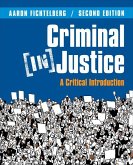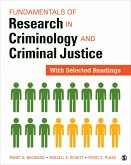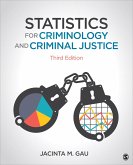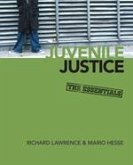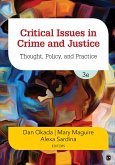Criminal (In)Justice: A Critical Introduction takes an unflinching look at the American criminal justice system and the social forces that affect the implementation of justice. Author Aaron Fichtelberg uses a unique, critical perspective to introduce readers to criminal justice and encourages them to look closer at the intersection of race, class, gender, and inequality in the criminal justice system. Covering each of the foundational areas of the criminal justice system-policing, courts, and corrections-this book takes an in-depth look at the influence of inequality, making it ideal for those who want to critically assess and understand the American criminal justice system.
Bitte wählen Sie Ihr Anliegen aus.
Rechnungen
Retourenschein anfordern
Bestellstatus
Storno


